Knowledge is Power – 8 August online session
On Thursday 8 August, we hosted our 16th online flagship Knowledge is Power session. It is an entry-level online workshop which aims to increase knowledge of the UK asylum and immigration system, and to provide people with the tools to navigate it.
The workshops are mainly attended by people who are in the system, and people who support them (from grassroots groups as well as larger organisations).
During our latest workshop, we went through Right to Remain’s resources, particularly the Toolkit. The participants engaged in an interactive activity to test their ability to navigate the Toolkit and find key answers within it.
Then, we took a look at the asylum system as it stands now. Over the last few years, the asylum process in the UK has taken many turns (mostly for the worse), and it is important for our community to remain updated with its latest iteration. Importantly, every piece of information or activity we carry out during the Knowledge is Power workshops is contained within the Toolkit itself. This time, we spent a bit more time on the asylum substantive interview process, given that with the halting of the Rwanda plan and the Illegal Migration Act’s impact, many more people are now being invited to interview after significant delays.
After a short break, we went on to consider the differences between providing legal support and legal advice. Knowing and implementing the difference between the two is very important, particularly as the collapse of Legal Aid provision means that many support organisations are stepping into more of a hands-on role with people in the system – it is both an empowering and cautionary exercise to know what non-legally qualified people can do to support someone’s asylum or immigration journey.
We received really positive comments from participants on what actions they will be taking following the workshop:
“I am an asylum seeker so I will use this knowledge to tell someone who is struggling because myself I am really trying to break this [wall]”
“I will make time for learning within the work week by using / reading the toolkit.”
We look forward to hosting our next session soon!
Bournemouth Solidarity Session, 12 August
On August 12th, we hosted an online Solidarity Session for groups in Bournemouth and across Dorset. The session was a crucial gathering for those involved in solidarity work with the people in the asylum and immigration system across the county. Originally, we intended to host the event in person, but due to the recent race riots, we prioritised the safety of our community by moving it online. Despite these challenges, we were joined by 25 organisations from across the county, making the event a powerful moment of collective action and learning.
Introducing and Using the Toolkit
We began the session by diving into the Toolkit. We highlighted its key attributes – that it is practical, community-led, and regularly updated to reflect the ever-changing landscape of asylum rights. The goal of the resource is to ensure that all users know their rights and can navigate the system effectively, and once you are aware of the Toolkit, to share it; everyone in the community should feel empowered to use it and spread the word, ensuring that knowledge is not concentrated but distributed among those who need it most.
The first activity focused on using the Toolkit proactively, by finding definitions within the resource by using the search bars.
Understanding Home Office Decisions
Next, we guided participants through exercises that aimed to prepare them for both positive and negative asylum decisions from the Home Office. The first exercise asked attendees to order the stages after a negative Home Office decision. A refusal from the Home Office is not the end of the road, and this activity was designed to demonstrate that hope remains for achieving refugee status even after an initial denial. We then focused on appealing a refusal decision at the First-tier Tribunal by discussing common problems and solutions.
In the next activity, participants looked at understanding the impact of obtaining refugee status. While this status is a relief, it also brings a complete shift in rights and access to support, which can be overwhelming without proper preparation, so we looked at addressing common issues that arise after a positive Home Office decision. We then moved onto a quiz on terminology: to further reinforce understanding, we conducted a quiz covering key terms like Indefinite Leave to Remain (ILR) and the Family Reunification Process.
Solidarity Space: Reflecting on the recent race riots
The session concluded with a solidarity space, providing a moment to reflect on the recent violent and horrifying race riots across the UK. This was an emotional and necessary discussion, where several key issues emerged:
- Lack of Solicitors and Support: Participants noted the shortage of solicitors and the need for more people to engage in supporting asylum seekers, especially given the rise in far right sentiment across the country.
- Community Building in Bournemouth: There was a strong call to strengthen community ties in Bournemouth, emphasising the need for education and networking. Groups like Portland Global Friendship Group were praised for their role in creating a welcoming community on Portland and providing solidarity to those on the Bibby barge.
- Importance of Clear Information: Misinformation, especially around terms like “illegal immigrants,” was identified as a significant problem. The discussion underscored the importance of using accurate language and providing clear information to counter that of right wing politicians and years of anti-migrant rhetoric.
The Bournemouth Solidarity Session was a testament to the power of community, knowledge-sharing, and collective action. In times of crisis, it’s crucial to come together, support one another, and ensure that everyone has the tools and information they need to navigate the complexities of the asylum system.


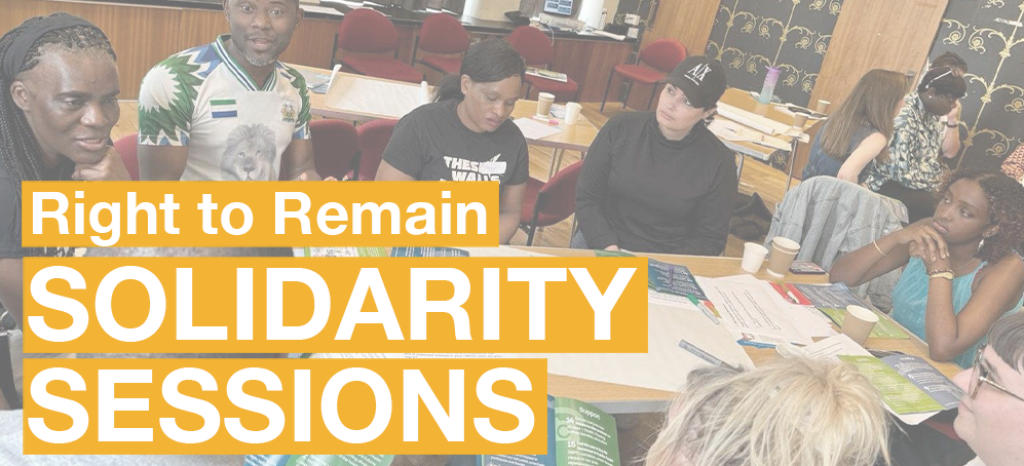
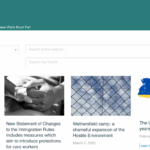






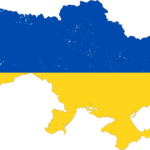
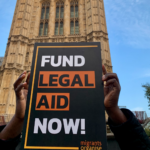
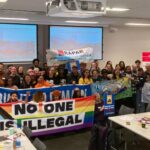
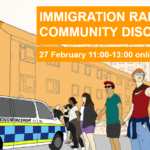

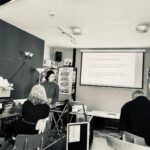
Discussion: